- Monday, 25 August 2025
Husband, wife contest poll from rival parties
Husband, wife and siblings are contesting the upcoming local elections in the same wards from different parties in Siddarthanagar Municipality Ward No. 6 of Rupandehi district. They have fielded their candidacies for the posts of ward chairperson and member. Loktantrik Samajwadi Party (LOSAPA) has nominated Kripashankar Mallaha for the post of ward chairperson. Similarly, his wife Seema Mallaha has been nominated as a ward member by the Nepali Congress (NC). In the last local level election, Seema was elected as a ward member from the NC.
Janakpurdham mayoral candidate Chaudhary issues commitment paper
Manoj Chaudhary, contesting for the post of mayor of Janakpurdham Metropolitan City from the Loktantrik Samajbadi Party (LSP), has made public his 29-point commitment paper. He released the paper amidst a press conference at the party’s office in Janakpur on Friday. In the paper, Chaudhary promises to build an outer ring road around the city, turn it into a developed tourist destination, solve the sub-metro’s long-standing waste problem and recycle trash to make useful things, improve the quality of education, draft and implement a local curriculum in the city’s community schools, provide free treatment to chronically ill patients as well as those injured during different movements and protests and those belonging to Dalit and martyr families, create employment opportunities by providing skill-based training, modernise agriculture and create a media-friendly local level.
Dharan candidates in door-to-door campaign
As the local level election nears, the candidates from across the political spectrum in Dharan Sub-Metropolitan City have thrown all their might on door-to-door campaigns to seek the people’s support. The local leaders, cadres and independent candidates vying for the various posts in the local bodies are focused on door-to-door electoral campaigns. Lately, candidates of mayor and deputy mayor posts at Dharan Sub-Metropolitan City and candidates of ward chairman and members are visiting voters' doorsteps to appeal to people to vote in large numbers in their support.
Gorkhapatra anniversary prize winners announced
Various journalists associated with the Gorkhapatra Corporation are receiving awards on the occasion of the 122nd anniversary of the Gorkhapatra daily and the 60th anniversary of the Gorkhapatra Corporation on Saturday. On the occasion, Gorkhapatra publication has announced the names of its nine stringers, one each from all seven provinces and two from the Kathmandu Valley, for the Best Stringer Awards for their outstanding performance.
Gandaki govt begins budget preparation process
The Gandaki Province government, which is now busy preparing policy, programme and budget for the coming fiscal year 2022/23, has held discussions with the former vice-chairmen of the National Planning Commission and other experts. The discussions were held on Wednesday and Thursday at the Ministry of Finance of the Province. In the discussions held in the presence of Chief Minister Krishna Chandra Nepali Pokhrel, former vice chairmen of the Planning Commission Dr. Jagadish Chandra Pokhrel, Dipendra Bahadur Kshetri, Min Bahadur Shrestha, Dinesh Chandra Devkota and others were present.
NEA calls tender to sell 200 MW surplus power to India
Nepal Electricity Authority (NEA) has called for tenders to sell the surplus electricity during the rainy season at competitive rates in India. The NEA on Friday called for tenders and sought proposals from Indian companies for the sale of 200 MW of electricity generated from hydropower projects in Nepal. Even though the country is facing power shortage in this dry season due to reduced domestic power generation, it is expected to generate surplus electricity and be able to export during the monsoon season.
Minister Karki not happy with work progress
Minister for Information and Communication Technology Gyanendra Bahadur Karki has expressed dissatisfaction over the progress of the work done by the subordinate bodies under the ministry. Addressing a meeting of the third quarterly progress review of the Ministry and ministry level development problem solution committee of the fiscal year 2078/79 on Friday, he directed the heads of all the bodies to work in such a way that the people can feel.
Our ‘smart’ journey
Gorkhapatra is not just a publication, it is a prestigious school of Nepali journalism. As the nation’s oldest newspaper, Gorkhapatra, which has been published continuously for 122 years, is our pride and history. It carries our civilisation and culture. It is a heritage of our rich literature and linguistic diversity.The beginning of Gorkhapatra’s publication in 1901 did not just lay the foundation of journalism in the country but also heralded a revolution in communication. The establishment of Gorkhapatra against the backdrop of a conservative political system and a controlled society more than a century ago was a bold and courageous step. It was this organisation that provided the consciousness and inspiration to forge the path towards an open society and democracy.Gorkhapatra, which has been incessantly informing and educating the citizens of this country, embodies an entire age. It has weathered the ups and downs of history and has witnessed social upheavals and political transformation.We indeed have a rich history to be proud of but we must now change our thinking, style and pace to effectively shape our present in the competitive market of this digital age. The need of the hour is to give Gorkhapatra and its publications a ‘digital shift’ and for that, our efforts are focused on starting a new ‘smart’ journey. Our goal is to build a ‘smart Gorkhapatra’ to meet the needs of the present digital age for which, a campaign has been launched to improve and enhance the Gorkhapatra Corporation’s internal system and trends and the quality of its publications.With the rapid advancements in information technology, not only the media business but the very characteristic of journalism has changed. Journalists and newspapers are no longer the ones who wield the greatest power in today’s digital world, the technology and readers do. Social media is one of the biggest challenges for mainstream media. In this context, we want to express our commitment to formulating concrete strategies and plans to develop Gorkhapatra as a vibrant and powerful organisation in the field of communication by enhancing the quality of its editorial productions (Gorkhapatra Daily, The Rising Nepal, Yubamanch, Madhupark and Muna) and carrying out necessary policy reforms and restructuring.We have already started our Kohalpur edition for western Nepal. Our Biratnagar publication has been covering the eastern part of the country. Now we are working to make the production and distribution of the Corporation’s publications more effective and efficient in both these regions. We have also initiated discussions and homework to begin publications from each of the seven provinces in collaboration with the provincial governments. Furthermore, we strive to make both our print and digital versions more oriented to the readers’ needs, interests and desires by making use of the available tools, resources and technologies. We have changed the traditional look of Gorkhapatra and The Rising Nepal and given them a newer and ‘smarter’ design and layout. We are encouraged by the positive response we have received about this from our esteemed readers. Now our focus is on the effective presentation of quality content. With the unprecedented development of technology and the aggressive expansion of social media, people can get news the instant it breaks in the palm of their hands. So why should a reader wait 24 hours to read Gorkhapatra and The Rising Nepal? We must now answer this by radically improving our content.To cater our better services, we have revamped the news portal of both Gorkhapatra and The Rising Nepal. We are also working on strengthening the social media presence of our publications.Similarly, we have been working to promote national unity and social harmony by publishing inclusive and diverse contents in more than 40 of our nation’s languages. The inclusive picture and character of the new Nepal is reflected in our publications. We have also prioritised the digital archiving of every issue of Gorkhapatra and The Rising Nepal published since 1901 to preserve promote them as a national heritage. We have moved forward with new strategies and action plans for advertisement, business promotion and revenue growth to make the corporation economically self-sufficient and sustainable.We express our heartfelt gratitude to all the esteemed readers, writers, advertisers and well-wishers who have showed us constant love and provided us valuable support over the last 122 years of our journey. We face the challenge of adapting to the current digital age and establishing a foothold in the hyper-competitive market. We are coming up with a new plan to face and overcome this challenge. We express our commitment to developing ourselves as a beloved, reliable and responsible media organisation that all readers are able to read easily and that speaks to the heartbeat of all Nepalis.Bishnu Prasad SubediExecutive Chairman
Schools with polling stations, booths to be closed for 3 days
The government has decided to close schools with polling stations and polling booths for three days for polling purpose. The Centre for Education Human Resource Development (CEHRD) of the Ministry of Education Science and Technology (MoEST) stated that the schools will remain closed on May 11, 12 and 13 for the purpose. The CEHRD instructed all Education Development and Coordination Unit (EDCU) across the country not to make physical presence of students in polling stations as the school building has to be used for the purpose of polling.
Gorkhapatra: A Robust Public Media
The self-perception of the press is the protector of public and national interests. Free and independent press is the ideal institution of democracy. It contributes to the formation of a cultural community, national identity and its projection in the international sphere. Nepal’s cultural syncretism manifestly separates it from the neighbours while its social diversity resonates with an extraordinary scale of freedom, tolerance and resilience. The defence of press freedom rooted in public interests can balance the nationwide communication as opposed to those driven by doctrinaire, commercial, partisan, infotainment or projectised media lacking either national awareness or the verve of emancipatory potential of modernity.
Significance Of Timely Capital Spending
Nepal’s annual budget has been facing numerous problems. For a few years, the budget has been superseding capital expenditure and the government has tried to promote capital formation. Despite public criticism and vows from the government to address this issue, the cycle continues. Capital expenditure is essential to expedite the quality and quantity of public service delivery. A large amount of such expenditure is concentrated on the investment of infrastructure, especially the transport, health, education, and research.
Print Has A Future
We live in an online, digital world today. Everything we have and everything we will have in the decades to come will be online and digital. Technology has got us in a stranglehold and we cannot escape it no matter how hard we try – our life requirements will not allow us to, as anyone who has ever tried, and failed, to quit social media can attest. This is not to say that digital is bad. On the contrary, the convenience and speed they offer have made them an essential part of our modern lives. But that begs the question, with the increasing digitisation, do print media have a future?
Excited to choose own government
Since the promulgation of the constitution on September 20, 2015, the first phase of its implementation is completing. In accordance with the federal set-up, of the three-tier government in the country, election of the local level was held first in 2017. That term is about to complete. Local polls for the second term are scheduled for May 13. Once held, periodic election in line with the implementation of the constitution will complete one cycle.
Poll campaign in full swing in capital valley
The local level elections are just a week away and the national political atmosphere has heated up. Candidates, independent and politically-backed alike, have begun campaigning and reaching out to voters. Parties have mobilised their cadres to get their members elected. The electoral atmosphere has fully gripped Nepal and as the capital, Kathmandu Metropolitan City (KMC) is at the centre of it all. Big political names like Keshav Sthapit and Sirjana Singh and independents like Balen shah have announced their candidacy for the mayorship of this city. This seems to have the voters excited.
NC defers conventions of sister bodies
The ruling Nepali Congress has put off its scheduled sister and well-wisher organisations' general convention. NC chief secretary Krishna Prasad Paudel in its statement on Wednesday said that scheduled general convention was put off as organisations were involved in making party and alliance candidates victorious in local poll scheduled for May 13. He said it was not seen relevant to hold general conventions around the date of local elections.


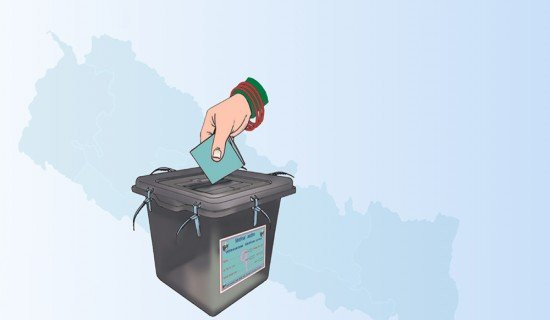
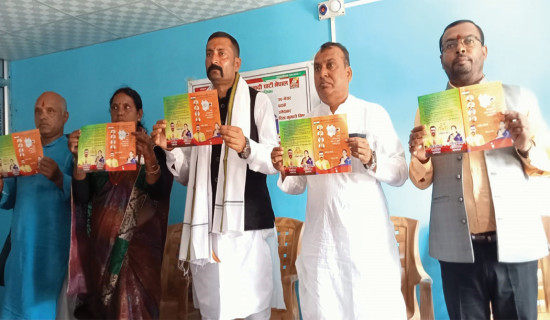

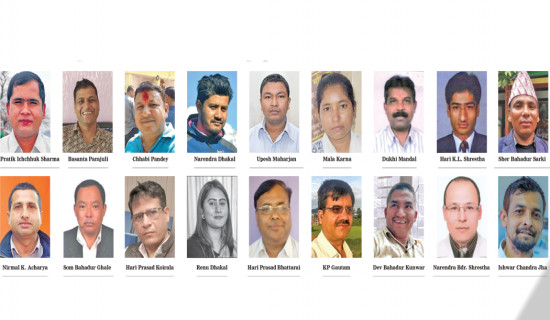
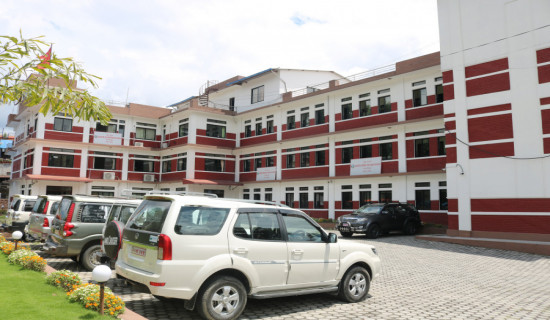
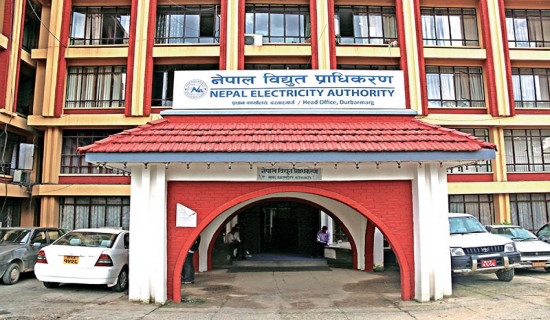
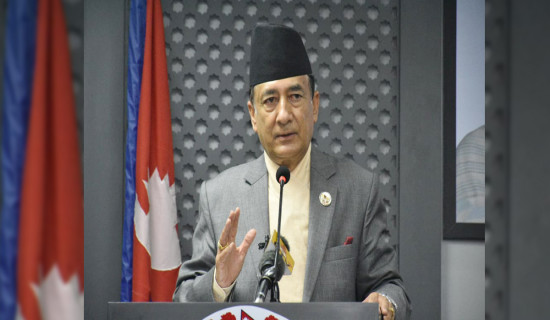
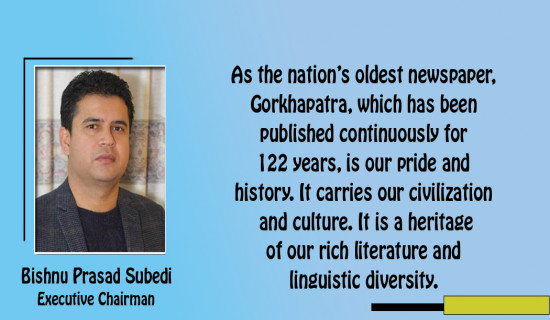
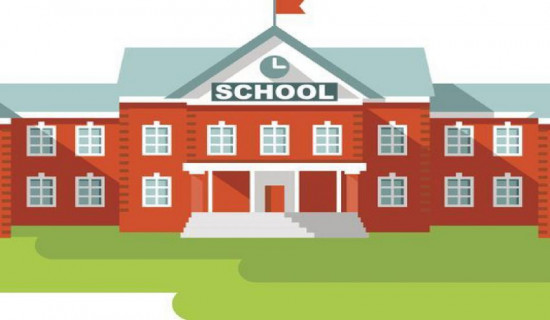
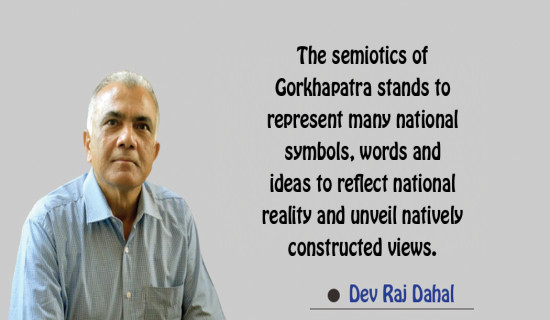
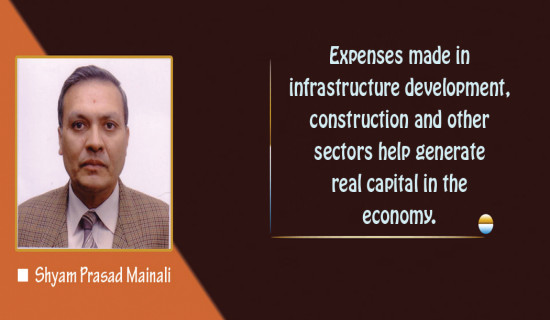

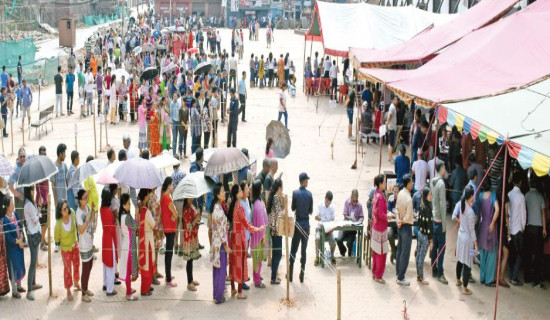


.jpeg)